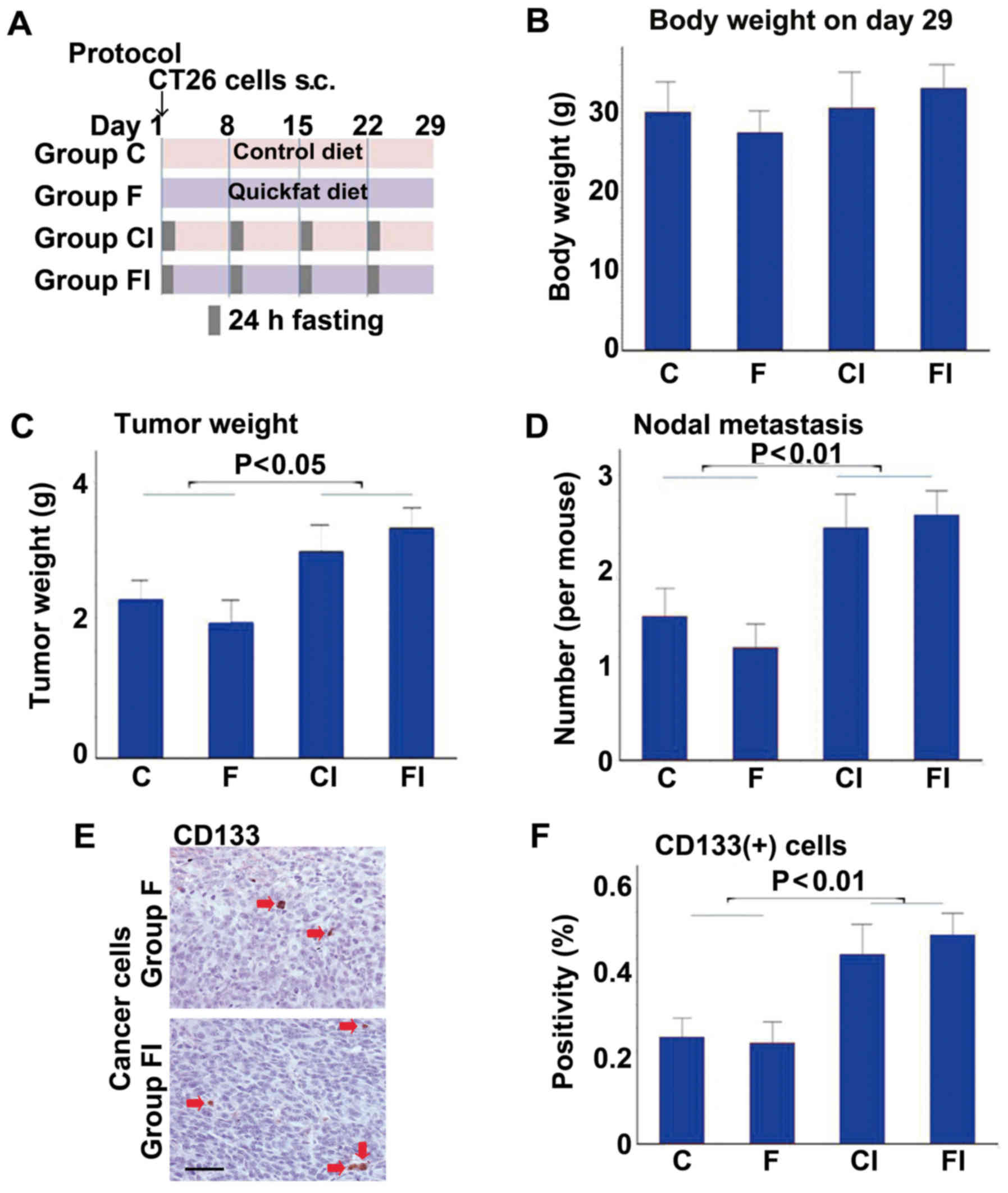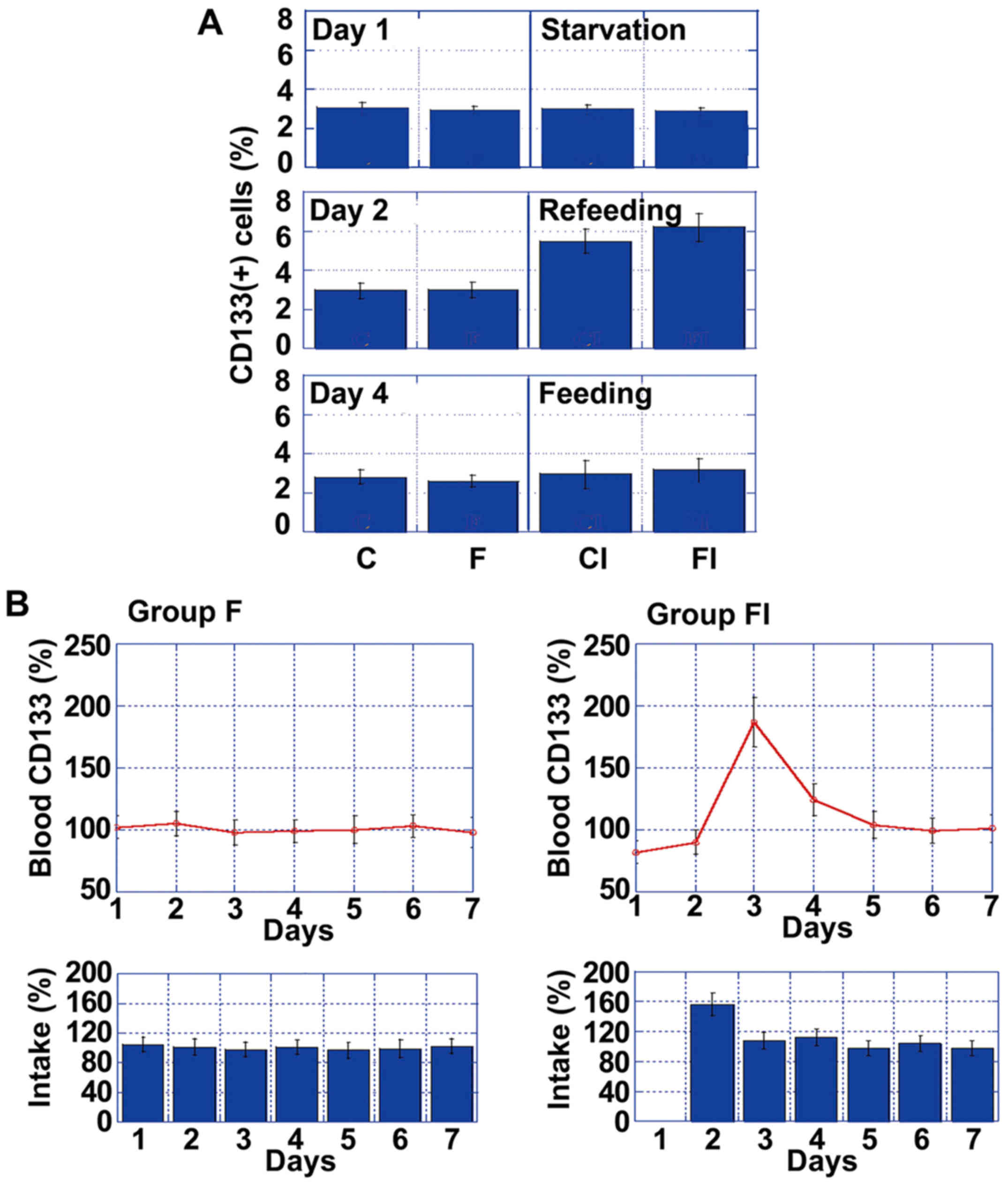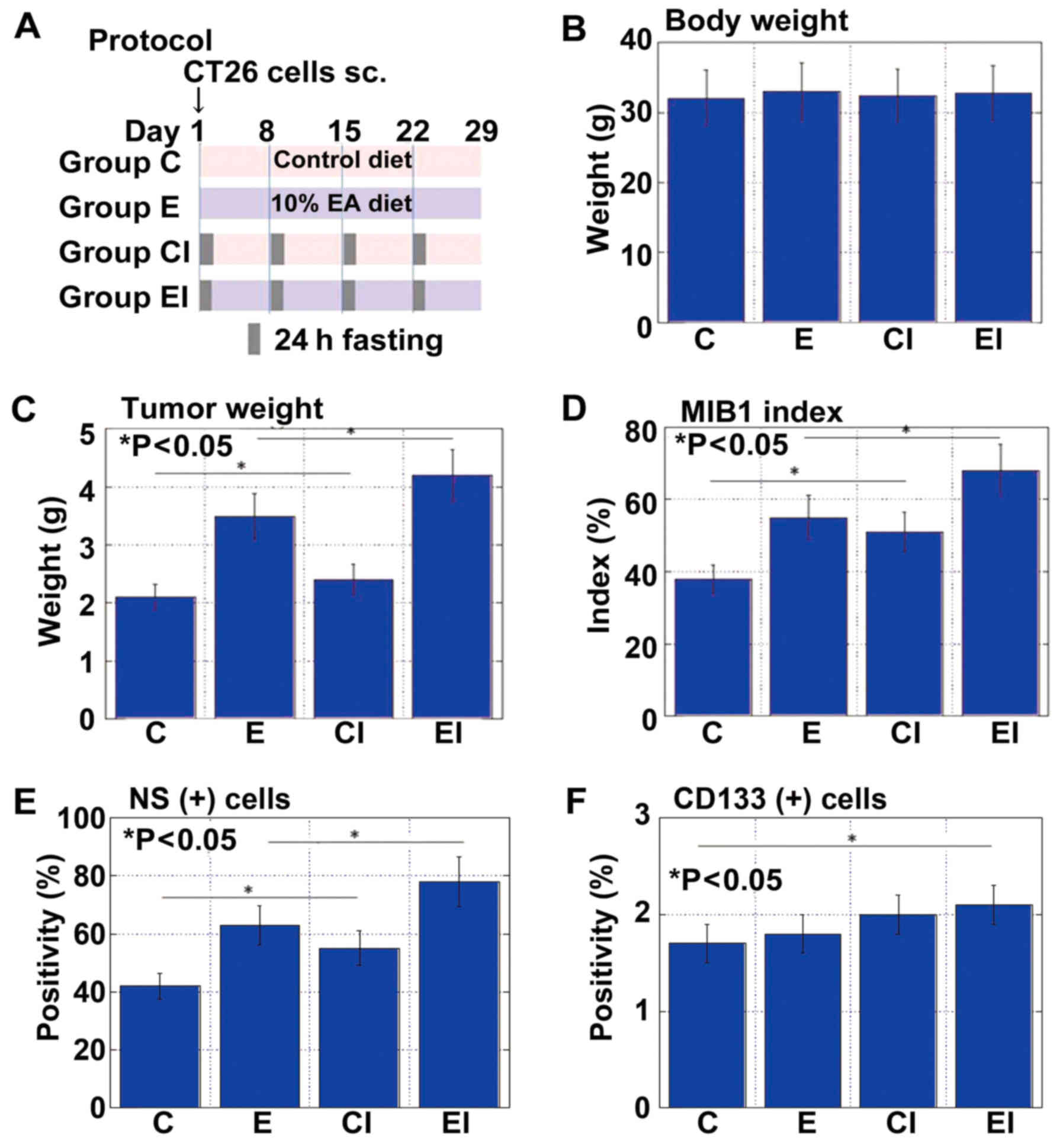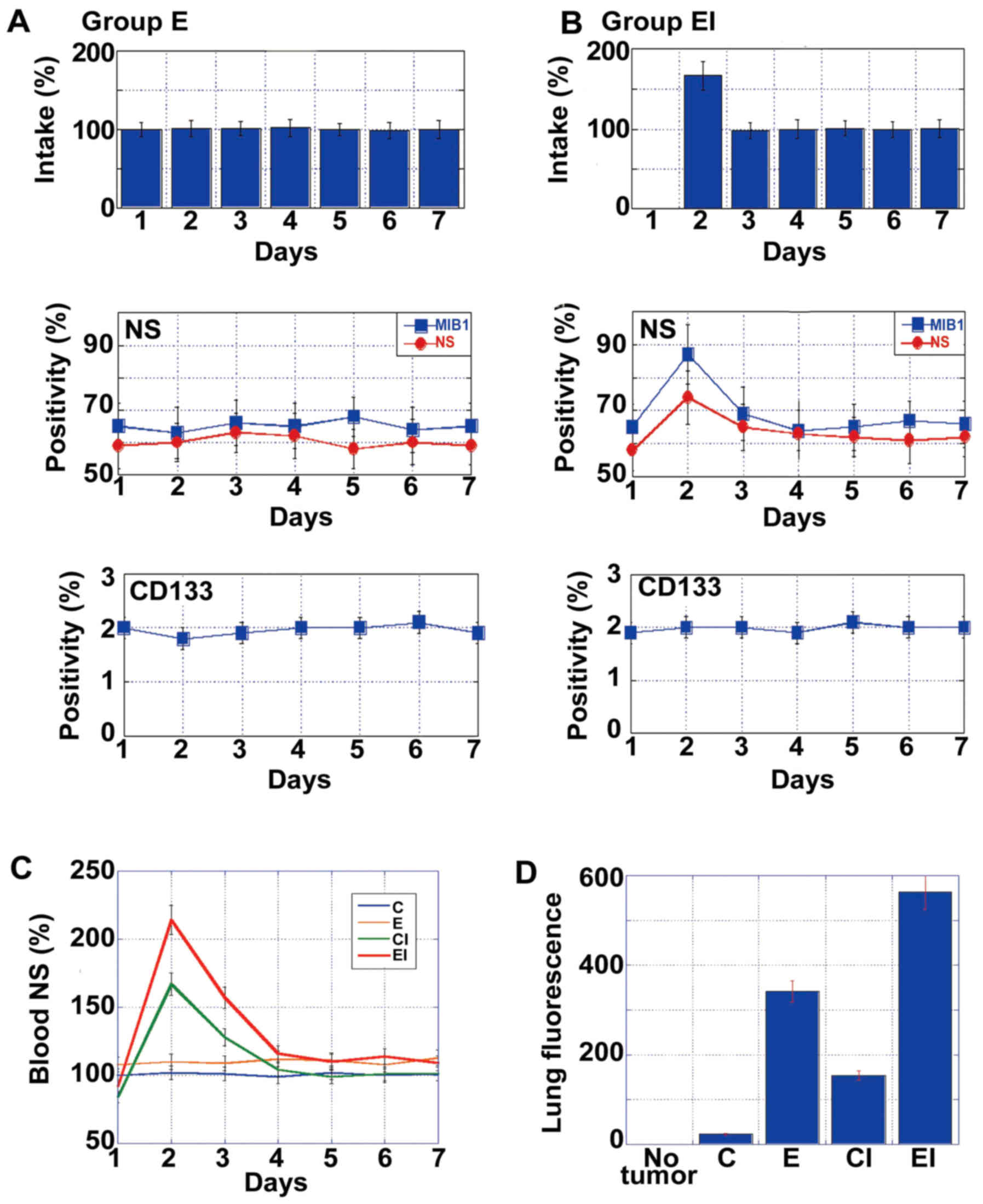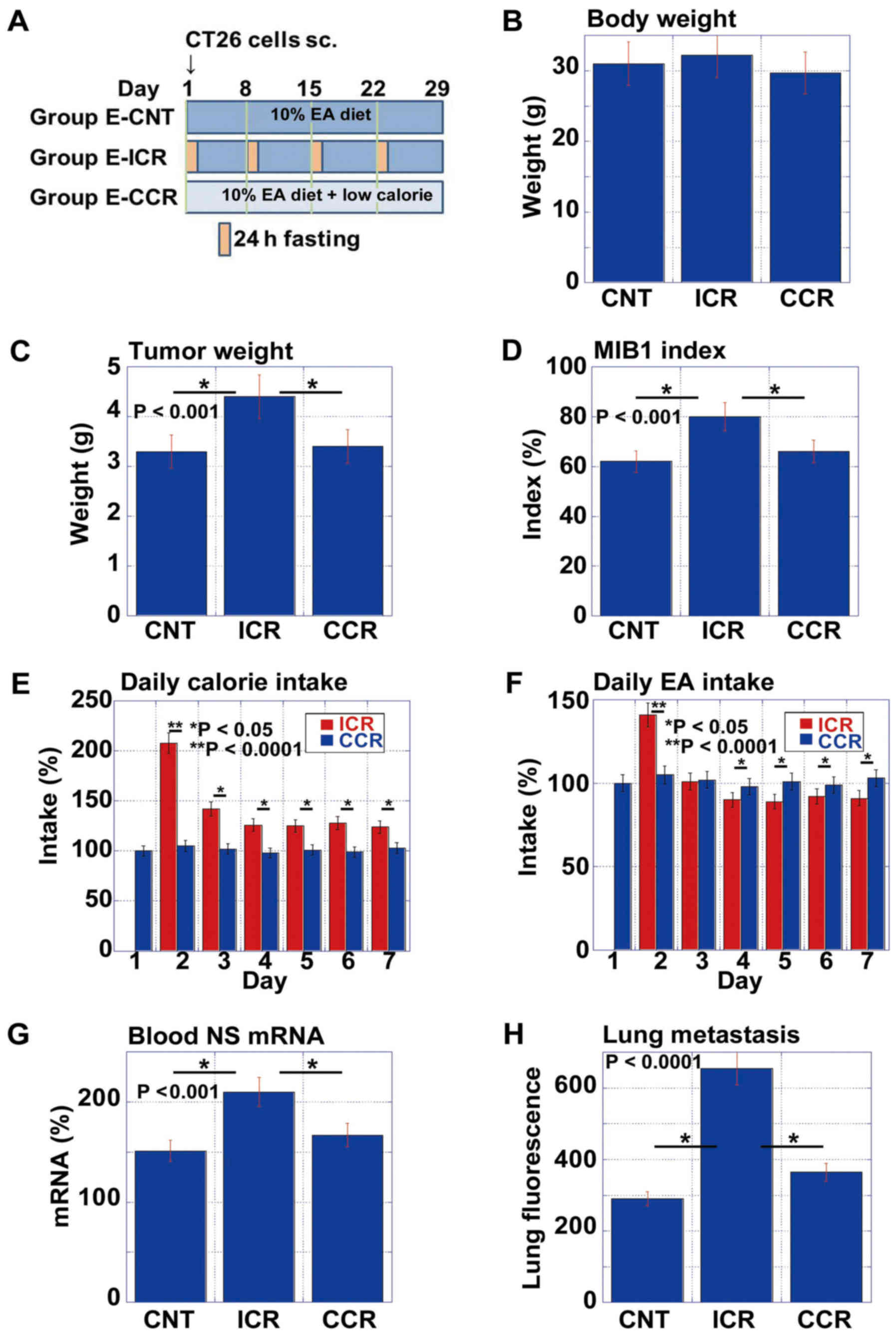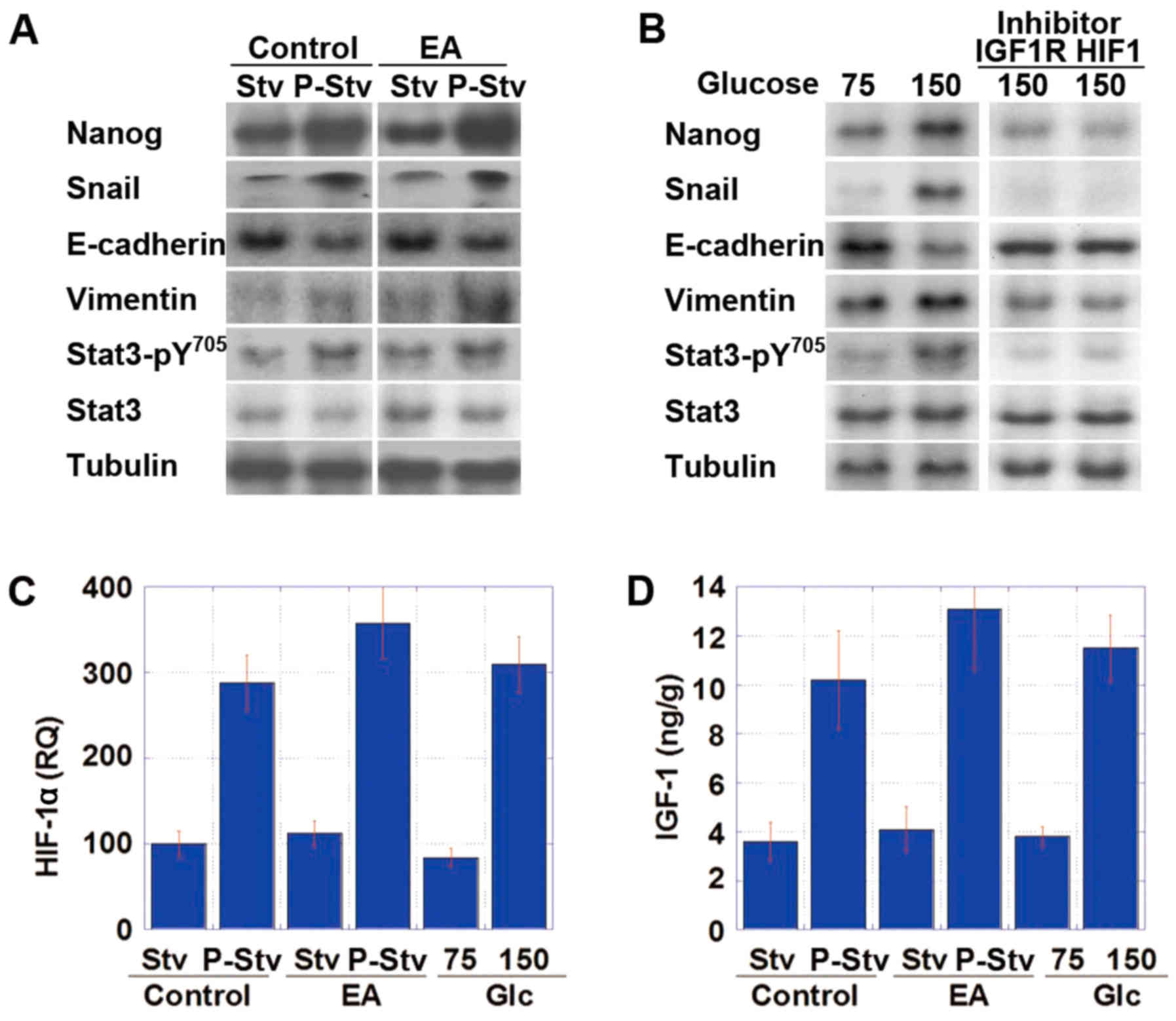|
1
|
Lee C and Longo V: Dietary restriction
with and without caloric restriction for healthy aging. F1000Res.
5:52016.
|
|
2
|
Allott EH and Hursting SD: Obesity and
cancer: Mechanistic insights from transdisciplinary studies. Endocr
Relat Cancer. 22:R365–R386. 2015. View Article : Google Scholar : PubMed/NCBI
|
|
3
|
Barnosky AR, Hoddy KK, Unterman TG and
Varady KA: Intermittent fasting vs daily calorie restriction for
type 2 diabetes prevention: A review of human findings. Transl Res.
164:302–311. 2014. View Article : Google Scholar : PubMed/NCBI
|
|
4
|
Varady KA: Intermittent versus daily
calorie restriction: Which diet regimen is more effective for
weight loss? Obes Rev. 12:e593–e601. 2011. View Article : Google Scholar : PubMed/NCBI
|
|
5
|
Johnstone A: Fasting for weight loss: An
effective strategy or latest dieting trend? Int J Obes. 39:727–733.
2015. View Article : Google Scholar
|
|
6
|
Lv M, Zhu X, Wang H, Wang F and Guan W:
Roles of caloric restriction, ketogenic diet and intermittent
fasting during initiation, progression and metastasis of cancer in
animal models: A systematic review and meta-analysis. PLoS One.
9:e1151472014. View Article : Google Scholar : PubMed/NCBI
|
|
7
|
Thompson HJ and McTiernan A: Weight
cycling and cancer: Weighing the evidence of intermittent caloric
restriction and cancer risk. Cancer Prev Res (Phila). 4:1736–1742.
2011. View Article : Google Scholar
|
|
8
|
Calder PC: Functional roles of fatty acids
and their effects on human health. JPEN J Parenter Enteral Nutr.
39(Suppl 1): 18S–32S. 2015. View Article : Google Scholar : PubMed/NCBI
|
|
9
|
Rose DP: Dietary fatty acids and cancer.
Am J Clin Nutr. 66(Suppl 4): 998S–1003S. 1997.PubMed/NCBI
|
|
10
|
Kuniyasu H, Ohmori H and Fujii K:
Significance of trans fatty acids in colorectal cancer. Current
Research in Cancer. 9. Sunitha M: Research Media; Kerala, India:
pp. 21–29. 2015
|
|
11
|
Food and Drug Administration: Final
Determination Regarding Partially Hydrogenated Oils. 2015
|
|
12
|
Cascio G, Schiera G and Di Liegro I:
Dietary fatty acids in metabolic syndrome, diabetes and
cardiovascular diseases. Curr Diabetes Rev. 8:2–17. 2012.
View Article : Google Scholar : PubMed/NCBI
|
|
13
|
Mozaffarian D, Aro A and Willett WC:
Health effects of trans-fatty acids: Experimental and observational
evidence. Eur J Clin Nutr. 63(Suppl 2): S5–S21. 2009. View Article : Google Scholar : PubMed/NCBI
|
|
14
|
Zong WX, Rabinowitz JD and White E:
Mitochondria and Cancer. Mol Cell. 61:667–676. 2016. View Article : Google Scholar : PubMed/NCBI
|
|
15
|
Warburg O: On respiratory impairment in
cancer cells. Science. 124:269–270. 1956.PubMed/NCBI
|
|
16
|
Kellenberger LD, Bruin JE, Greenaway J,
Campbell NE, Moorehead RA, Holloway AC and Petrik J: The role of
dysregulated glucose metabolism in epithelial ovarian cancer. J
Oncol. 2010:5143102010. View Article : Google Scholar : PubMed/NCBI
|
|
17
|
Dell' Antone P: Energy metabolism in
cancer cells: How to explain the Warburg and Crabtree effects? Med
Hypotheses. 79:388–392. 2012. View Article : Google Scholar : PubMed/NCBI
|
|
18
|
Kuwada M, Chihara Y, Luo Y, Li X,
Nishiguchi Y, Fujiwara R, Sasaki T, Fujii K, Ohmori H, Fujimoto K,
et al: Pro-chemotherapeutic effects of antibody against
extracellular domain of claudin-4 in bladder cancer. Cancer Lett.
369:212–221. 2015. View Article : Google Scholar : PubMed/NCBI
|
|
19
|
Livak KJ and Schmittgen TD: Analysis of
relative gene expression data using real-time quantitative PCR and
the 2(−Delta Delta C(T)) method. Methods. 25:402–408. 2001.
View Article : Google Scholar
|
|
20
|
Kuniyasu H, Yano S, Sasaki T, Sasahira T,
Sone S and Ohmori H: Colon cancer cell-derived high mobility group
1/amphoterin induces growth inhibition and apoptosis in
macrophages. Am J Pathol. 166:751–760. 2005. View Article : Google Scholar : PubMed/NCBI
|
|
21
|
Kuniyasu H, Oue N, Wakikawa A, Shigeishi
H, Matsutani N, Kuraoka K, Ito R, Yokozaki H and Yasui W:
Expression of receptors for advanced glycation end-products (RAGE)
is closely associated with the invasive and metastatic activity of
gastric cancer. J Pathol. 196:163–170. 2002. View Article : Google Scholar : PubMed/NCBI
|
|
22
|
Ohmori H, Fujii K, Kadochi Y, Mori S,
Nishiguchi Y, Fujiwara R, Kishi S, Sasaki T and Kuniyasu H: Elaidic
acid, a trans-fatty acid, enhances the metastasis of colorectal
cancer cells. Pathobiology. 84:144–151. 2017. View Article : Google Scholar
|
|
23
|
Fujii K, Luo Y, Fujiwara-Tani R, Kishi S,
He S, Yang S, Sasaki T, Ohmori H and Kuniyasu H: Pro-metastatic
intracellular signaling of the elaidic trans fatty acid. Int J
Oncol. 50:85–92. 2017. View Article : Google Scholar
|
|
24
|
Hatori M, Vollmers C, Zarrinpar A,
DiTacchio L, Bushong EA, Gill S, Leblanc M, Chaix A, Joens M,
Fitzpatrick JA, et al: Time-restricted feeding without reducing
caloric intake prevents metabolic diseases in mice fed a high-fat
diet. Cell Metab. 15:848–860. 2012. View Article : Google Scholar : PubMed/NCBI
|
|
25
|
Zarrinpar A, Chaix A and Panda S: Daily
eating patterns and their impact on health and disease. Trends
Endocrinol Metab. 27:69–83. 2016. View Article : Google Scholar :
|
|
26
|
Crabtree HG: Observations on the
carbohydrate metabolism of tumours. Biochem J. 23:536–545. 1929.
View Article : Google Scholar : PubMed/NCBI
|
|
27
|
Wang Y, Zhu YD, Gui Q, Wang XD and Zhu YX:
Glucagon-induced angiogenesis and tumor growth through the
HIF-1-VEGF-dependent pathway in hyperglycemic nude mice. Genet Mol
Res. 13:7173–7183. 2014. View Article : Google Scholar : PubMed/NCBI
|
|
28
|
Xu Q, Zhang Q, Ishida Y, Hajjar S, Tang X,
Shi H, Dang CV and Le AD: EGF induces epithelial-mesenchymal
transition and cancer stem-like cell properties in human oral
cancer cells via promoting Warburg effect. Oncotarget. 8:9557–9571.
2017.
|
|
29
|
Lee C and Longo VD: Fasting vs dietary
restriction in cellular protection and cancer treatment: From model
organisms to patients. Oncogene. 30:3305–3316. 2011. View Article : Google Scholar : PubMed/NCBI
|
|
30
|
Guimarães TA, Farias LC, Santos ES, de
Carvalho Fraga CA, Orsini LA, de Freitas Teles L, Feltenberger JD,
de Jesus SF, de Souza MG, Santos SH, et al: Metformin increases PDH
and suppresses HIF-1α under hypoxic conditions and induces cell
death in oral squamous cell carcinoma. Oncotarget. 7:55057–55068.
2016. View Article : Google Scholar
|
|
31
|
Klement RJ and Champ CE: Calories,
carbohydrates, and cancer therapy with radiation: Exploiting the
five R's through dietary manipulation. Cancer Metastasis Rev.
33:217–229. 2014. View Article : Google Scholar : PubMed/NCBI
|
|
32
|
Shaw RJ: Glucose metabolism and cancer.
Curr Opin Cell Biol. 18:598–608. 2006. View Article : Google Scholar : PubMed/NCBI
|
|
33
|
Garcia-Heredia JM and Carnero A: Decoding
Warburg's hypothesis: Tumor-related mutations in the mitochondrial
respiratory chain. Oncotarget. 6:41582–41599. 2015. View Article : Google Scholar : PubMed/NCBI
|
|
34
|
Zhong Y, Li X, Yu D, Li X, Li Y, Long Y,
Yuan Y, Ji Z, Zhang M, Wen JG, et al: Application of mitochondrial
pyruvate carrier blocker UK5099 creates metabolic reprogram and
greater stem-like properties in LnCap prostate cancer cells in
vitro. Oncotarget. 6:37758–37769. 2015. View Article : Google Scholar : PubMed/NCBI
|
|
35
|
Yin X, Zhang BH, Zheng SS, Gao DM, Qiu SJ,
Wu WZ and Ren ZG: Coexpression of gene Oct4 and Nanog initiates
stem cell characteristics in hepatocellular carcinoma and promotes
epithelial-mesenchymal transition through activation of Stat3-Snail
signaling. J Hematol Oncol. 8:232015. View Article : Google Scholar
|
|
36
|
Liu S, Sun J, Cai B, Xi X, Yang L, Zhang
Z, Feng Y and Sun Y: NANOG regulates epithelial-mesenchymal
transition and chemoresistance through activation of the STAT3
pathway in epithelial ovarian cancer. Tumour Biol. 37:9671–9680.
2016. View Article : Google Scholar : PubMed/NCBI
|
|
37
|
Ganguly R and Pierce GN: Trans fat
involvement in cardiovascular disease. Mol Nutr Food Res.
56:1090–1096. 2012. View Article : Google Scholar : PubMed/NCBI
|
|
38
|
Prentice AM: Overeating: The health risks.
Obes Res. 9(Suppl 4): 234S–238S. 2001. View Article : Google Scholar : PubMed/NCBI
|
|
39
|
Costa N, Cruz R, Graça P, Breda J and
Casal S: Trans fatty acids in the Portuguese food market. Food
Control. 64:128–134. 2016. View Article : Google Scholar : PubMed/NCBI
|
|
40
|
Chausse B, Solon C, Caldeira da Silva CC,
Masselli Dos Reis IG, Manchado-Gobatto FB, Gobatto CA, Velloso LA
and Kowaltowski AJ: Intermittent fasting induces hypothalamic
modifications resulting in low feeding efficiency, low body mass
and overeating. Endocrinology. 155:2456–2466. 2014. View Article : Google Scholar : PubMed/NCBI
|
|
41
|
Lauzurica N, García-García L, Pinto S,
Fuentes JA and Delgado M: Changes in NPY and POMC, but not
serotonin transporter, following a restricted feeding/repletion
protocol in rats. Brain Res. 1313:103–112. 2010. View Article : Google Scholar
|
|
42
|
Corwin RL: The face of uncertainty eats.
Curr Drug Abuse Rev. 4:174–181. 2011. View Article : Google Scholar : PubMed/NCBI
|
|
43
|
Zhao J, Huang X, Xu Z, Dai J, He H, Zhu Y
and Wang H: LDHA promotes tumor metastasis by facilitating
epithelial mesenchymal transition in renal cell carcinoma. Mol Med
Rep. 16:8335–8344. 2017.PubMed/NCBI
|
|
44
|
Morandi A, Taddei ML, Chiarugi P and
Giannoni E: Targeting the metabolic reprogramming that controls
epithelial-to-mesenchymal transition in aggressive tumors. Front
Oncol. 7:402017. View Article : Google Scholar : PubMed/NCBI
|















